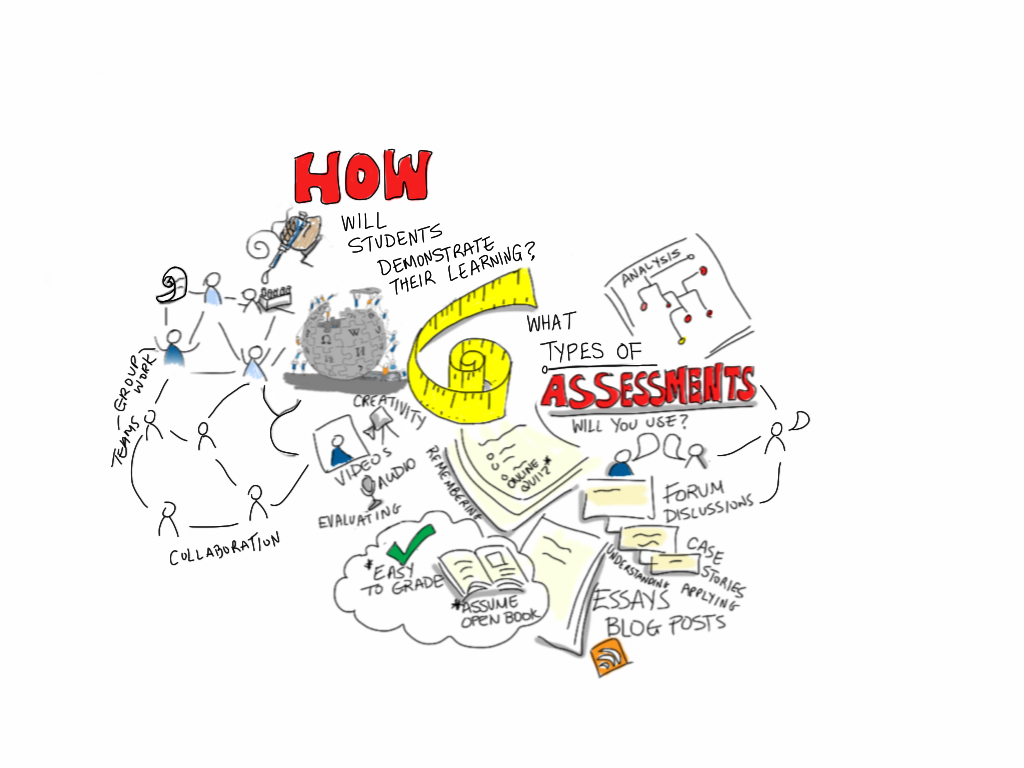Building exceptional learning experiences
Rather tn merely measuring performance, we should use a variety of assessment forms, including multimedia and interactive formats, to focus academic development and course design around building exceptional learning experiences. We want to encourage the students to develop masterful levels of knowledge and practice, while remaining engaged with their learning communities.
Interesting Assessment Examples
Here are some examples of interesting assessment activities from the course materials:
- An online portfolio of student’s work collected at intervals over the duration of the course submitted with a covering letter discussing the rationale for its design.
- A set of coding exercises submitted at intervals during the course using computational notebooks
- A simulation where students must make a series of choices through a decision tree with feedback provided at each decision.
- A multiple-choice quiz weekly or at the end of each section during the course. (Perhaps they could use Top Hat electronic voting)
- A Wikipedia entry on a new topic.
- An Open Educational Resource (OER) group authored on a blog around a topic of immediate relevance to a local community.
- A defined research proposal for submission to a PhD programme.
- A Padlet or Thinglink as a mindmap of course concepts and emerging thinking along with a design rationale.
- Using a browser based web annotation tool like Hypothes.is to annotate the internet as part of an assignment.
- Using Mediahopper to host podcasts created as assessments, or Soundcloud to host them and allow for peer feedback as comments.
Links
- Soundcloud
- Mediahopper
- Hypothes.is
- Thinglink
- Open Educational Resource (OER) groups
- Wikipedia entries
- Decision trees
- Computational notebooks
- Top Hat electronic voting
(Image: How will students demonstrate learning? What types of Assessments will you use? Mind map separated out (by request) for linear thinkers, by Giulia Forsythe, public domain, via Flickr)



Leave a Reply